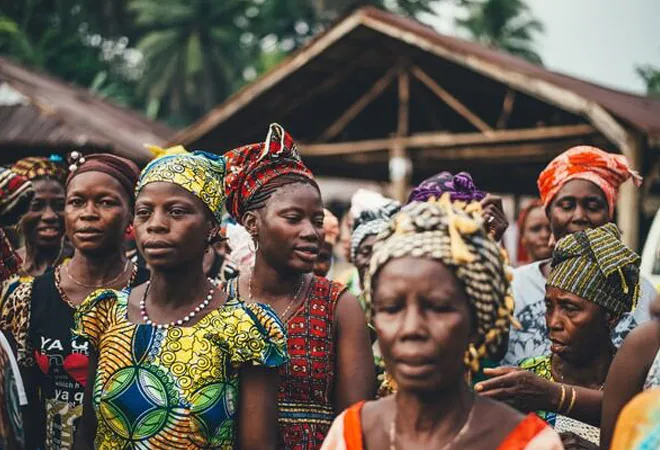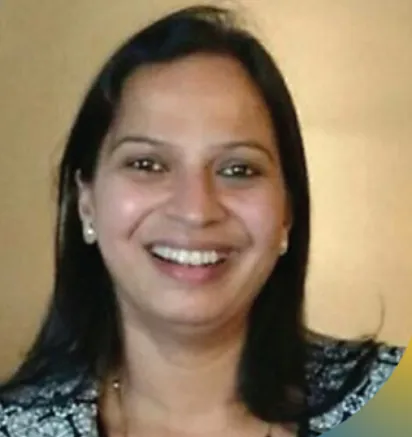-
CENTRES
Progammes & Centres
Location
Multiple overlapping global crises—such as the COVID-19 pandemic, climate change-related natural disasters, and regional armed conflicts—have highlighted the necessity of protecting and enhancing human capital in Africa

Investing in human capital in Africa is crucial for achieving the Sustainable Development Goals (SDGs). Africa faces numerous challenges, including poverty, high unemployment rates, inadequate access to education and healthcare, and a lack of infrastructure. These challenges can only be addressed by investing in the continent's human capital.
Africa, with an infant mortality rate of 72 per 1,000 live births, is far from achieving the target infant moratility rate of 25 per 1,000 live births by 2030. This is significantly higher than other regions of the world. Malnutrition is prevalent in Africa, with nearly 30.7 percent of children under the age of five stunted and more than one-quarter of children wasted. The region saw an increase in stunting from 54.4 million in 2000 to 61.4 million in 2020. Several factors contribute to high stunting prevalence in Africa, including poverty, limited access to clean water and sanitation facilities, inadequate healthcare, food insecurity, and poor maternal and child nutrition practices that hinder children's physical and cognitive development.
Although the region is seeing a slowdown in its progress towards important health goals like vaccine coverage, it has made outstanding strides in other areas throughout the 21st century’s first decade. Neonatal death rates decreased by 21 percent, maternal mortality decreased by 28 percent, and under five mortality decreased by 35 percent. However, all three targets have stagnated in the last 10 years, particularly maternal mortality, which has experienced the most stagnation. Although 56.3 percent of women within the reproductive age group (15-49) in Africa had access to modern contraceptives in 2020, the continent still performed the worst in terms of family planning compared to the global average of 77 percent.
Several factors contribute to high stunting prevalence in Africa, including poverty, limited access to clean water and sanitation facilities, inadequate healthcare, food insecurity, and poor maternal and child nutrition practices that hinder children's physical and cognitive development.
The COVID-19 pandemic's disruptive impact has made the slowdown worse. During the pandemic, vital health services such as antenatal care, immunisation, neonatal critical care units, and postnatal care for women and newborns were interrupted. Since 2021, occurrences of diseases that can be prevented by vaccination have also increased across Africa.
Some of the key obstacles to achieving the SDG on health are inadequate funding for health activities and investments in the sector. According to the 2022 World Health Organization (WHO) survey of 47 African countries, the region has a ratio of 1.55 health workers (doctors, nurses, and midwives) per 1,000 people—much lower than the WHO standard of 4.45 health workers per 1000 people required for basic healthcare and achieving universal health coverage.
Another factor is restricted social protection coverage in Africa, despite the relative importance of social protection policies being given at both the regional and national levels. According to the most recent International Labour Organization (ILO) estimates, the continent has the lowest level of social protection coverage in the world, with only 17 percent of the entire population receiving it, as opposed to a global average of 47 percent. This is due to the fact that most people are employed in the informal sector and that there is a serious underinvestment in social security, which accounts for less than 5 percent of a country's GDP on average, compared to the global average of 12.9 percent.
Lastly, sanitation remains a significant challenge in many parts of Africa, with open defecation being a key issue. Of the 1.3 billion people in Africa, 418 million still do not have access to even the most basic level of drinking water service, 779 million do not have access to basic sanitation (including 208 million who still defecate in the open), and 839 million do not have access to basic hygiene services.
The World Bank launched the Africa Human Capital Plan (HCP) by setting ambitious targets to increase and scale up human capital finance, broaden assistance across development sectors, and leverage policy- and results-based human capital reforms by 2023.
In 2019, the World Bank launched the Africa Human Capital Plan (HCP) by setting ambitious targets to increase and scale up human capital finance, broaden assistance across development sectors, and leverage policy- and results-based human capital reforms by 2023. The Human Capital Index accounts for survival, schooling, and health—all directly linked to achieving the SDGs by 2030. The table below indicates the progress achieved on the indicators in comparison to the baseline set in 2018. There has not been much progress in most of the indicators.
According to a recent report by the World Bank, ‘Strengthening governance, investing in human capital with a focus on education, and improving the business climate is key to achieving sustainable development for Guinea-Bissau’. Investments in quality education and skills development for Africa pave the way for a prosperous economy and society.
Investing in human capital with a gender lens is crucial for promoting gender equality and women's empowerment. Equal access to education, healthcare, and skills development opportunities enables women to fully participate in social, economic, and political spheres. Human capital development fosters social inclusion and reduces inequalities to ensure that marginalised populations, such as those in rural areas or from disadvantaged backgrounds, have equal access to education, healthcare, and skills development opportunities. Thus, investing in human capital can directly contribute to achieving several SDGs, including SDG 1 (No Poverty), SDG 2 (Zero Hunger), SDG 3 (Good Health and Well-being), SDG 4 (Quality Education), SDG 5 (Gender Equality), and SDG 8 (Decent Work and Economic Growth).
Human capital development fosters social inclusion and reduces inequalities to ensure that marginalised populations, such as those in rural areas or from disadvantaged backgrounds, have equal access to education, healthcare, and skills development opportunities.
Multiple overlapping global crises, such as the COVID-19 pandemic, climate change-related natural disasters, and regional armed conflicts have highlighted the necessity of protecting and enhancing human capital for good health and well-being. In conclusion, for Africa to invest in human capital effectively, there is a need to prioritise policies and actions that promote inclusive and equitable access to education and healthcare, strengthen skills development programmes, address gender disparities, and foster an enabling environment for human capital development. International cooperation, partnerships, and investments are crucial for supporting these efforts and achieving the desired outcomes for sustainable development in Africa.
Shoba Suri is a Senior Fellow with the Health Initiative at the Observer Research Foundation
The views expressed above belong to the author(s). ORF research and analyses now available on Telegram! Click here to access our curated content — blogs, longforms and interviews.

Dr. Shoba Suri is a Senior Fellow with ORFs Health Initiative. Shoba is a nutritionist with experience in community and clinical research. She has worked on nutrition, ...
Read More +